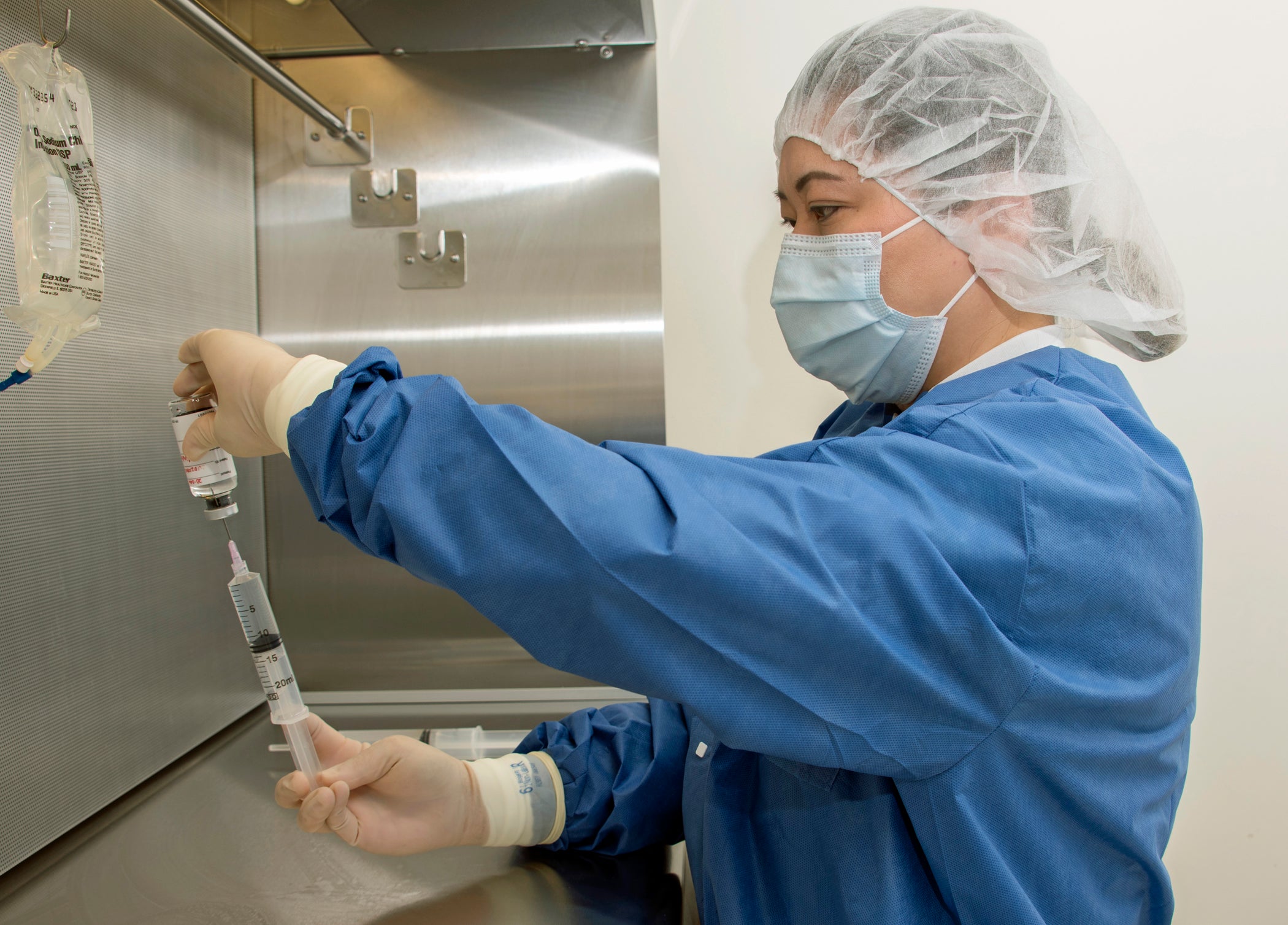
The majority of clinical trials involving Covid-19 vaccines or treatments are showing “encouraging” results, says an analyst.
Of the 21 ongoing coronavirus trials that have reported interim results, 16 have produced positive indications early on, according to analytics firm GlobalData.

Discover B2B Marketing That Performs
Combine business intelligence and editorial excellence to reach engaged professionals across 36 leading media platforms.
Some 69% of these clinical trials are currently in the early stages — either Phase I or Phase II — with US biotech firm Gilead Sciences’ remdesivir drug being the main exception having moved into Phase III testing in late-February.
Scotty Chung-Siu, a senior public health expert at GlobalData, said: “While many of the current Covid-19 clinical trials show promising early results, conclusions can only be drawn once the final data is reported.
“With 597 planned clinical trials, there will be more data to draw insights in the coming months and, possibly, a key drug candidate treatment for Covid-19 will emerge.”
Positive early results from Covid-19 clinical trials
The majority of estimated end-dates for Covid-19 trials fall between April 2020 and March 2021 — by which time Chung-Siu believes more relevant data on the efficacy of coronavirus treatments will be available.

US Tariffs are shifting - will you react or anticipate?
Don’t let policy changes catch you off guard. Stay proactive with real-time data and expert analysis.
By GlobalData“The majority of them are investigating different drugs, either alone or combination treatments, with one using a secondary intervention,” he added.
“The four multinational clinical trials that are planning to enrol the most subjects are investigating remdesivir, sarilumab and bevacizumab. One of the drugs that recently had positive clinical trials results is remdesivir.”
Remdesivir is a broad-spectrum antiviral medication to be taken intravenously. Gilead Sciences initially produced the drug in 2009 to treat hepatitis C, but it has since been repurposed and studied as a treatment for the Ebola virus, and, more recently, Covid-19.
Chung-Siu said: “The results from a Phase III ongoing trial by Gilead evaluating the safety and efficacy of remdesivir in patients with severe Covid-19 were announced on 29 April 2020.
“Remdesivir demonstrated similar clinical improvement in patients receiving a 10-day treatment to those receiving a five-day treatment.
“In addition, more than half of the patients were discharged by day 14 in both treatment groups while also achieving clinical recovery.
“Lastly, the drug candidate was well tolerated in both subject groups. The trial reported a 31% faster recovery time over those who received placebo.
“The recovery time was also 11 days for patients who were treated with remdesivir, compared to 15 days for the placebo.”
Sarilumab, which was initially made to treat rheumatoid arthritis (RA), is undergoing clinical trials involving patients with Covid-19 in the US, Canada and parts of Europe.
While it has shown initial positive results, the two firms companies conducting these trials – France-based pharma giant Sanofi and US biotech firm Regeneron – recently announced they had amended their Phase III trial of sarilumab after the drug met endpoints in treating critically ill patients, but not those in a less advanced, “severe” condition.
Negative trial results
According to GlobalData, five ongoing clinical trials of Covid-19 drugs have failed to demonstrate positive results so far.
The most notable example to date is hydroxychloroquine — an immunosuppressive drug, ordinarily used to treat malaria, that recently failed to meet endpoints and saw adverse events in a retrospective study.
Patients treated with hydroxychloroquine also had a higher mortality rate in clinical trials in the US.
Chung-Siu said: “There are two clinical trials that showed early negative results for efficacy and safety.
“One is a Phase II clinical trial to evaluate the safety and efficacy of chloroquine for the treatment of hospitalised subjects with severe acute respiratory syndrome [SARS].”
Despite this, the number of trials investigating chloroquine-based drugs as a primary or secondary Covid-19 medication continues to expand.
“The other study is a Phase III clinical trial evaluating the efficacy and safety of darunavir and cobicistat in the treatment of Covid-19 pneumonia,” Chung-Siu added.
“Both interventional trials have the same expected end date of 31 August 2020.”
Johnson & Johnson, one of the pharma firms that sells darunavir as a HIV treatment, said the drug has shown no evidence of being effective against the SARS-CoV-2 virus in testing thus far.





